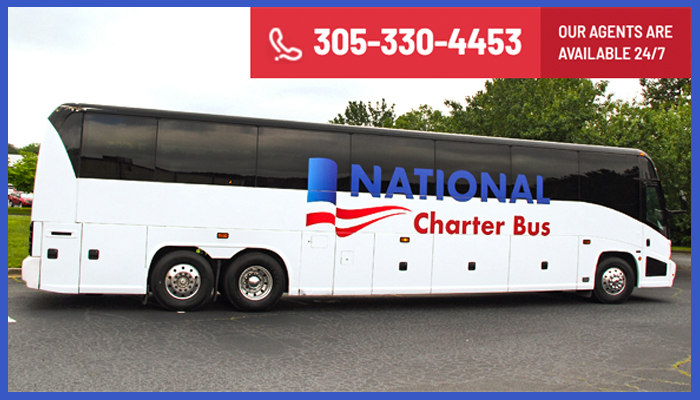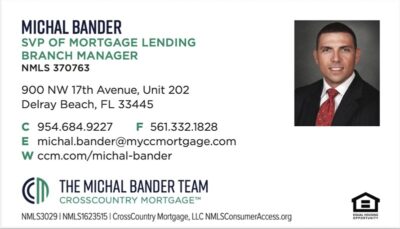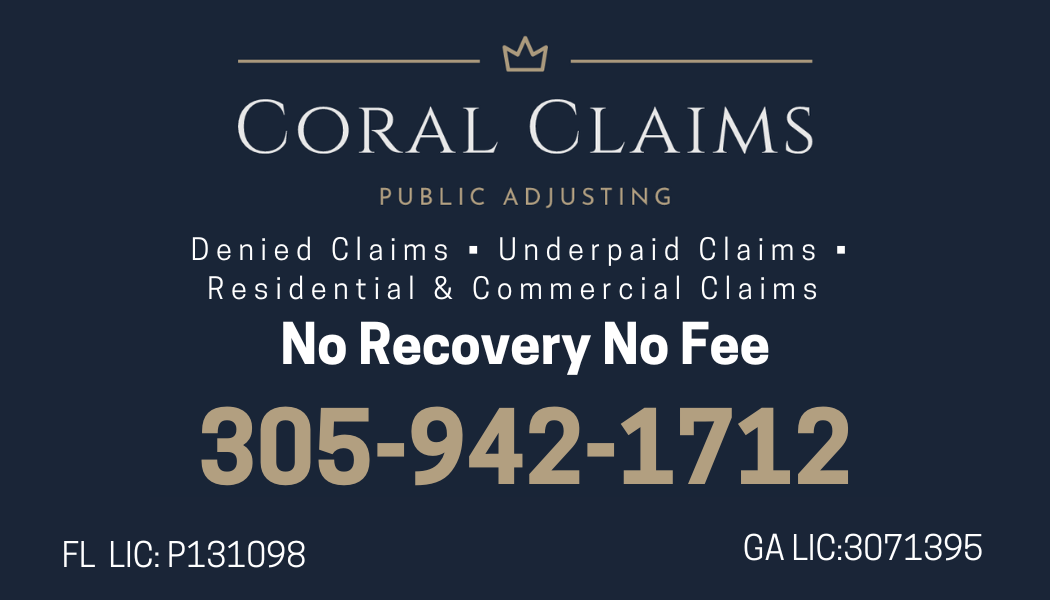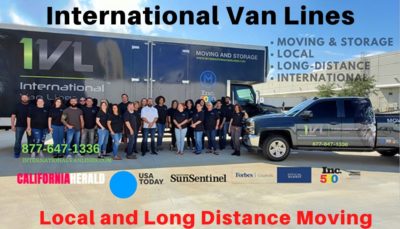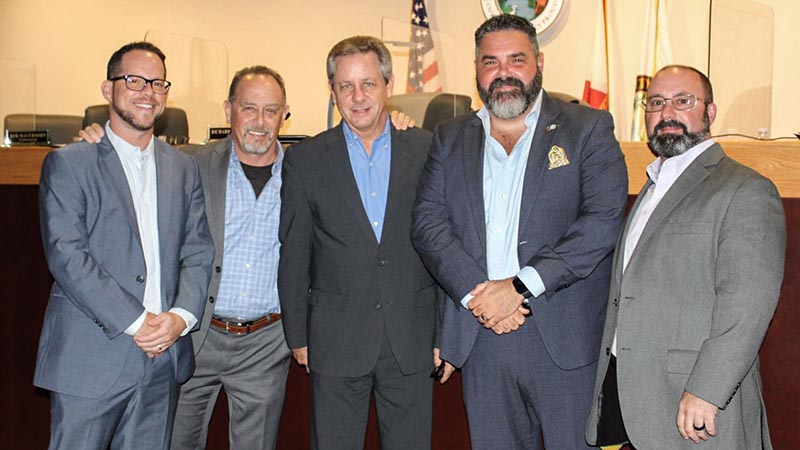
The Parkland City Commission. {City of Parkland}
By Bryan Boggiano
The Parkland city commission discussed the progress of the Heron Bay land acquisition and development at Thursday’s commission workshop, including market analyses and meetings with the North Springs Improvement District, Heron Bay Homeowners Association, and the Coral Springs City Commission.
They discussed the ongoing development’s of the city’s plan to purchase roughly 70 acres of the former Heron Bay Golf Course from NSID for about $25 million, which stretches across western Parkland and a small part of Coral Springs.
Parkland has until Aug. 30 to agree with NSID to purchase the land. Afterward, the city can seek about $7.1 million from Coral Springs.
City Manager Nancy Morando stated that she received two appraisals for the property.
The as-is rate, which considers the property’s current state without easements or development, is valued at $19.13 million. If the property is constructed to its highest potential with commercial and residential space, that value increases to $30.27 million.
Morando stated that she is waiting for a second appraisal and would request the first phase of an environmental analysis on the land on Friday, Aug. 5.
She expects to receive a market analysis by Aug. 18.
Morando stated that while there are still logistics that the city needs to figure out, their July 27 meeting with the Coral Springs City Commission reassured her that the two cities could collaborate on what is best for residents in both cities.
“After that meeting, I was extremely excited,” she said. “It was a very positive meeting, and [we’re] definitely headed in the right direction.”
City Attorney Anthony Soroko stated that he met with the Heron Bay HOA. The issues they discussed involved the covenant and its enforcement, easements between commercial and residential spaces and on Nob Hill Road, and meeting with the homeowners’ attorney against NSID to stop development.
Amongst the commission, the plan was met with mixed reviews.
Commission Bob Mayersohn said he is concerned about the number of details left to figure out about the land purchase and the city losing negotiation power with outside developers.
He also stated that there was too much risk in buying the property, considering changing market conditions.
Commissioner Simeon Brier echoed these financial sentiments and raised concerns about a clause stating that NSID would have to approve any third-party developers.
Commissioner Jordan Isrow discussed concerns over easements on the land, roadway accessibility, and parking along the south side of the development site.
Isrow and Mayersohn raised concerns over the project’s cohesiveness if and when different people are elected to each city’s commission.
He also stated that he does not want any potential development to overburden the city’s roads, schools, or parks. Among the city schools, Marjory Stoneman Douglas is overenrolled by almost 500 students.
Vice Mayor Ken Cutler expressed the same issues with negotiation power. He also expressed the need to see further appraisals, environmental studies, and market analyses.
Walker stated that the commercial aspect is necessary to give Parkland residents more to do in the city and to contribute more revenue to the city.
Without another source of revenue, Walker warned that the city would have to raise taxes.
Despite their concerns, Walker, Isrow, and Brier supported the project moving forward. Cutler was undecided, while Mayersohn expressed disapproval.
But the progress of the city’s meetings with stakeholders was not the first item that came up at the meeting.
Mayor Rich Walker started the meeting by responding to a report detailing a $19,450 contract that his business, Bergen Sign Company, received to provide NSID with signage.
Walker’s company started receiving payment in October 2020, which continued through 2021 and into the early phases of the project, as Walker supported commercial development.
In the report and at Thursday’s meetings, Walker underscored the donation’s significance, stating that it represented only about $20,000 of his company’s $5 million in revenue from the previous year.
He also stated that the $200,000 his company could have made from the Heron Bay redevelopment project would also have been minuscule.
In response to the report, Walker said that he had mixed emotions.
“I pride myself on my honesty, transparency, and my ethics. There was nothing unethical with what I did,” he said. “I had no obligation to talk about what I did. We weren’t even talking about Heron Bay two years ago.”
Walker said that his desire for commercial development in Parkland comes not from an interest to line his own pockets but to give the city autonomy, allow residents more options for certain activities, and contribute to the city’s tax base.
“I don’t need the money, so I don’t want the money, so that has never been a driving force for commercial [development],” he said.
Regardless, Walker admits that he should have been more honest beforehand and that he would not have any further projects with NSID.
City officials will discuss the Heron Bay land purchase further at an Aug. 18 workshop at City Hall at 6 p.m.
Send Your News to Parkland’s #1 Award-Winning News Source, Parkland Talk.
Author Profile

Related
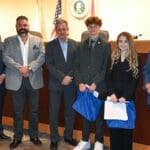 NewsNovember 22, 2023Parkland City Commission Recognizes 2 ‘Mayor for a Month’ Participants
NewsNovember 22, 2023Parkland City Commission Recognizes 2 ‘Mayor for a Month’ Participants NewsNovember 13, 2023Jordan Isrow Named Parkland’s New Vice Mayor
NewsNovember 13, 2023Jordan Isrow Named Parkland’s New Vice Mayor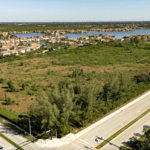 NewsNovember 12, 2023Parkland Commission to Vote on $600K in Upgrades for Wedge Preserve Park Development
NewsNovember 12, 2023Parkland Commission to Vote on $600K in Upgrades for Wedge Preserve Park Development NewsNovember 3, 2023Soldier Rush Obstacle Course Competition Races into Parkland Nov. 11
NewsNovember 3, 2023Soldier Rush Obstacle Course Competition Races into Parkland Nov. 11












